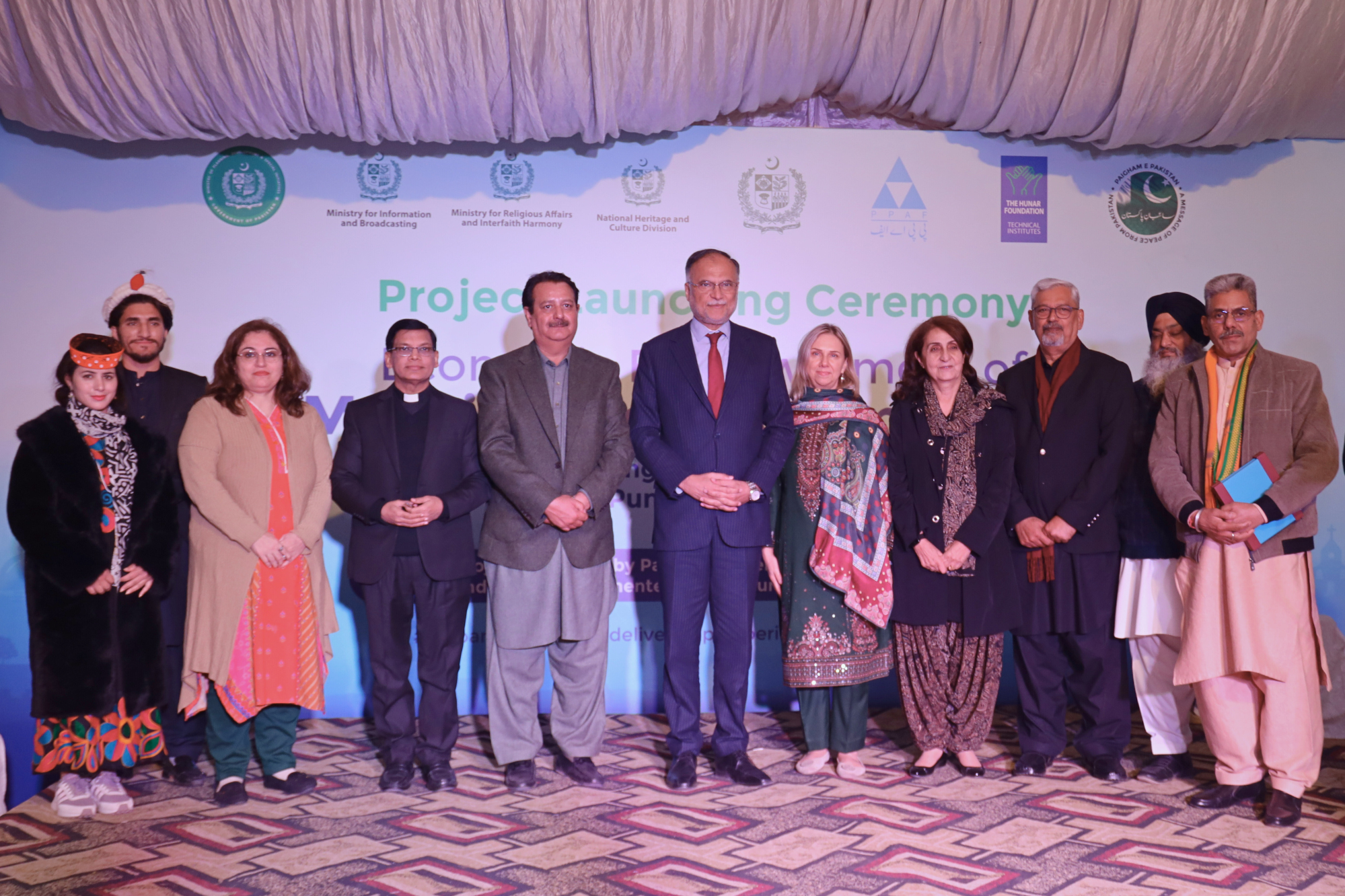PPAF and THF Partner to Empower Marginalized Communities Through Skills Training
Islamabad (20 January 2025)

Islamabad, January 20, 2025: The Pakistan Poverty Alleviation Fund (PPAF) and The Hunar Foundation (THF) have launched a groundbreaking initiative titled “Economic Empowerment of Marginalized Communities Through Strengthening Technical and Skills Training in Punjab and Sindh.” This transformative project aims to equip 500 individuals, including women, youth, and minorities, with technical and entrepreneurial skills, fostering sustainable livelihoods across 12 districts in Punjab and Sindh.
The launch ceremony, held in Islamabad, brought together key stakeholders, community representatives, and distinguished leaders to celebrate this impactful collaboration.
Honorable Ahsan Iqbal Chaudhary, Federal Minister for Planning, Development, and Special Initiatives, who graced the event as the chief guest, underscored the importance of such partnerships in addressing socio-economic challenges. He said, “This collaboration between PPAF and THF exemplifies how joint efforts by the government, private sector, and civil society can foster inclusive growth. Together, we are creating opportunities that uplift marginalized communities and contribute to a stronger, more equitable Pakistan. Empowering individuals with skills and entrepreneurship not only transforms lives but also lays the foundation for national progress and stability.”
In his opening remarks, Mr. Tahir Jawaid, CEO of The Hunar Foundation, shared that this initiative represents a collective effort to tackle socio-economic disparities. He added, “This partnership symbolizes a shared vision to empower individuals, enabling them to unlock their potential and contribute meaningfully to Pakistan’s progress. Together, we aim to create opportunities that lead to lasting change.”
Mr. Nadir Gul Barech, CEO of PPAF, emphasized the project’s role in inclusive development. He stated, “Today, we take another step toward our shared commitment to transforming lives. At PPAF, we believe economic empowerment is not just about equipping individuals with skills but also about creating an environment where marginalized groups can thrive. Through this collaboration, we aim to provide holistic support that includes skill-building, mentorship, access to resources, and an ecosystem fostering entrepreneurship. This initiative reflects our vision of a Pakistan where every individual, irrespective of gender, faith, or socio-economic background, has the opportunity to fulfill their potential. Empowering 500 individuals is not just a number – it represents 500 families with brighter futures, 500 communities strengthened, and countless lives uplifted by the ripple effect of hope and prosperity.”
The event also featured reflections from representatives of diverse faiths, showcasing Pakistan’s strength in unity and diversity. Ms. Shagufa Jamal from the Bahá'í community said that empowerment begins with inclusion, and this initiative is a beacon of hope for all. Mr. Anmol Singh from the Sikh community shared that this effort embodies the spirit of service and unity that defines our collective future. Mr. Mohan Lal Kashyap from the Hindu community added that by creating opportunities for all, we foster harmony and sustainable progress. Mr. Sher Majam from the Kalasha community said that for their community, this project is life-changing and inspires confidence in a brighter future.
Fr. Sarfraz Simon from the Christian community remarked that this initiative reflects the value of compassion and the importance of service to humanity. Mr. Kashif Irshad, Advisor at the National Heritage and Culture Division and Chairman of the Pakistan Ulema Council, further added that this partnership demonstrates that unity in diversity can drive national progress. Ms. Saleha Zakir Shah, Director General of Communications and Outreach at NACTA, shared that empowering marginalized groups not only uplifts individuals but also strengthens the foundation of social harmony. Syed Arsalan Zaidi, Advisor on Preventing and Countering Terrorism at UNODC, stated that addressing vulnerabilities through skills training is pivotal to fostering peace and stability. The event concluded with a heartfelt vote of thanks, acknowledging the vital contributions of all stakeholders in making